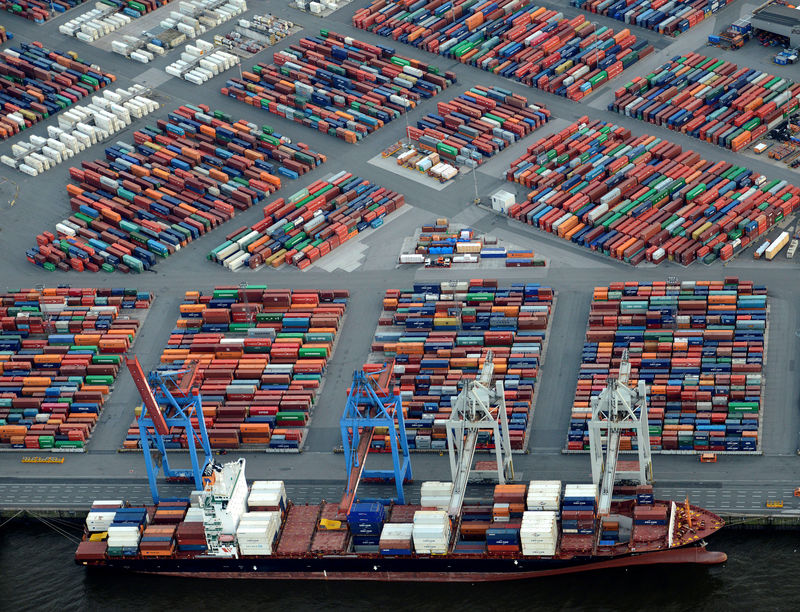By Joseph Nasr and Michael Nienaber
BERLIN (Reuters) - Germany's economy expanded at its fastest in six years in 2017 as its public finances posted a record surplus, fuelling expectations of another strong showing in 2018 and sharpening a political debate about how the windfall should be managed.
Growth reached 2.2 percent last year, the federal statistics office said on Thursday. That missed a Reuters poll forecast of 2.4 percent but was still the highest since 2011, with consumer spending, boosted by ultra-low borrowing costs and record high employment, providing the biggest impetus.
Exports, the traditional driver of Europe's largest economy, also contributed as demand for 'made in Germany' goods picked up globally and in a euro zone experiencing its broadest recovery in a decade.
"Now it is about making sure that the economic shine continues into the future," said Thomas Gitzel of VP Bank. "Investments are needed. The next government has a big burden. It is time to take action instead of resting on laurels."
Chancellor Angela Merkel conservatives are hoping to form a coalition with the Social Democrats (SPD), but she said on Thursday - the final day of exploratory talks that could lead to formal negotiations - that there were still high hurdles to clear.
Part of the debate is focused on whether the next government should cut taxes to boost the upswing, which Merkel's CSU/CDU alliance favours and which it has the fiscal wiggle room to do, or raise them to tame the risk of a bubble, as some conservative economists recommend.
The SPD has suggested raising taxes on high earners to fund higher welfare spending.
Separate federal statistics data made clear the leeway available to trim the fiscal burden and increase spending.
The public sector, which includes the federal government, regional states, municipalities and social funds, posted a record budget surplus of 38.4 billion euros in 2017 after 25.7 billion euros in the previous year, it said.
PRICE PRESSURES
The buoyant economy is also increasing price pressures, and inflation last year grew at its fastest rate in five years.
That will feed into a heated debate among rate-setters at the European Central Bank (ECB), who need to decide whether still subdued price pressures in the bloc as a whole are rising enough to justify unwinding its asset easy money policies.
A breakdown of the GDP data showed capital investments were the second-largest growth driver, contributing 0.6 percentage points. Exports contributed 0.2 percentage points.

The positive economic picture contrasts with the political deadlock in Berlin, where Merkel - weakened by a poor showing by her conservatives in a national election in September - is hoping to conclude coalition talks by the end of March to secure a fourth term in office.